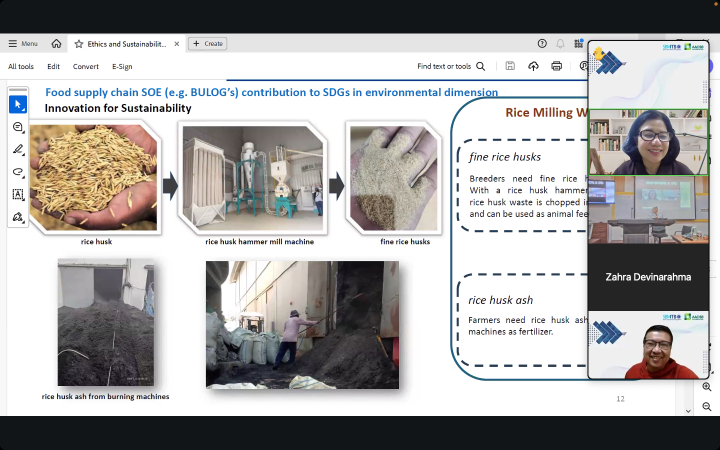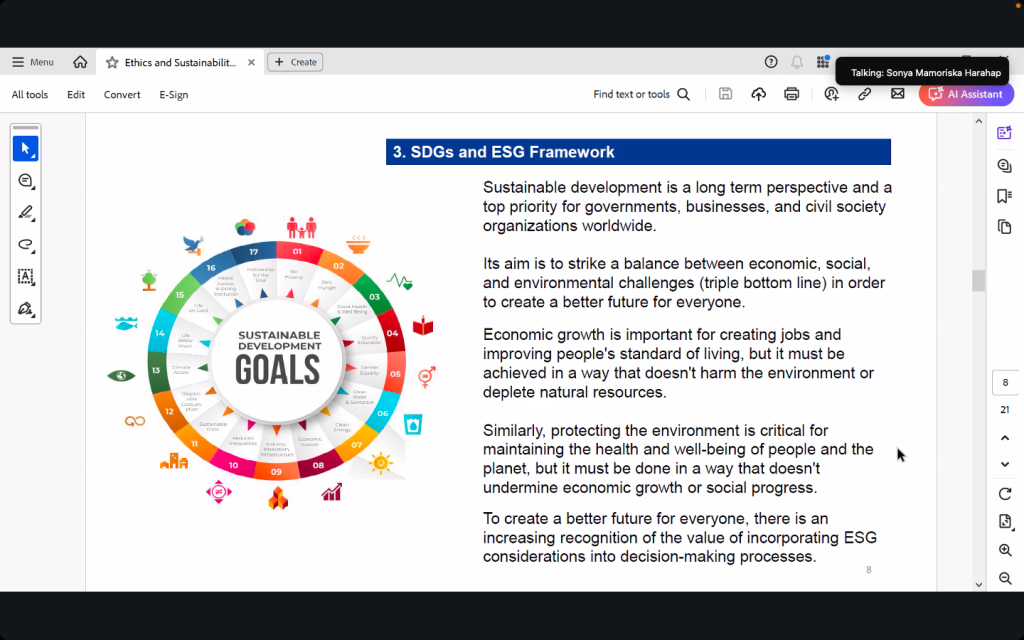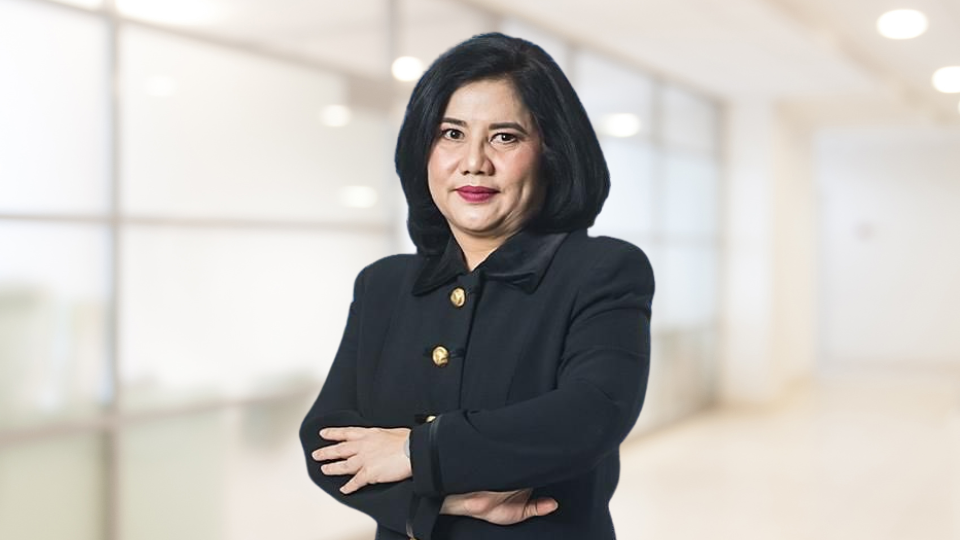Sonya Mamoriska, Director of Transformation and Institutional Relations at Perum Bulog, highlighted the vital role Bulog plays as a state-owned enterprise (BUMN) in maintaining the affordability and availability of staple foods in Indonesia. Speaking during a guest lecture on “Corporate Global Action of Sustainability: Best Practice Sustainability in Large Companies” at SBM ITB, on Saturday (2/11), Sonya emphasized Bulog’s commitment to food security through the Environmental, Social, and Governance (ESG) approach.
Bulog incorporates environmental sustainability by minimizing waste using a zero-waste concept. By-products from rice milling and corn drying facilities, such as rice husks, are repurposed into animal feed or fertilizer, supporting the socio-economic sustainability of surrounding communities. These initiatives align with Bulog’s Sustainable Development Goals (SDGs) commitment.

“Bulog is not just a company but an institution committed to maintaining national food stability. Through a robust sustainability strategy, we aim to contribute significantly to Indonesia’s food security,” Sonya stated.
Regarding social responsibility, Bulog ensures the availability and affordability of essential staples such as rice, corn, and soybeans. The organization also enhances community welfare through training and empowerment programs. One notable example is the Industry Ecosocio-System Program in Sragen, Central Java, where local communities are trained in oyster mushroom cultivation using rice husk ash. This program provides tangible economic benefits to participants, reflecting Bulog’s dedication to community development.
Bulog adheres to good corporate governance (GCG) principles, including risk management, risk-based audits, and anti-bribery policies. The organization regularly reports its operational and financial performance to ensure transparency and accountability. Additionally, Bulog complies with ISO standards such as ISO 31000 for risk management and ISO 37001 for anti-bribery management systems.
Sonya acknowledged the challenges state-owned enterprises (SOEs) face in ESG reporting, including data availability, inconsistent standards, and compliance difficulties. Bulog is continuously improving its ESG reporting standards and aligning with the latest regulations to address these issues. From 2024, ESG reporting will become mandatory for SOEs under the Ministry of SOEs, requiring a solid commitment and a well-developed process to foster an ESG culture.

One of Bulog’s primary strategies to maintain price stability is market intervention. During peak harvest seasons, when farmer-level prices fall significantly, Bulog is the buyer of last resort, purchasing goods at the government purchase price (HPP). Conversely, when food prices rise sharply, Bulog conducts market operations to ensure affordability for the public. This dual approach stabilizes farmers’ incomes while preserving consumers’ purchasing power.
Bulog also oversees the management of national food reserves, which exceed one million tons annually. In times of emergency or disaster, the organization distributes food aid. It ensures a steady supply of staple foods at affordable prices.
Bulog collaborates closely with various stakeholders, including ministries, importers, and local farmers. Through partnerships with the Ministry of Agriculture and the Ministry of Trade, Bulog receives funding and technical recommendations to fulfill its Public Service Obligations (PSO), including food imports when necessary. Additionally, programs like Mitra Tani provide local farmers with access to agricultural inputs and financing, further supporting sustainable farming practices.
Through its ESG-focused initiatives, Bulog continues to strengthen its role in ensuring sustainable food security for Indonesia while fostering environmental preservation, community welfare, and good governance practices.




